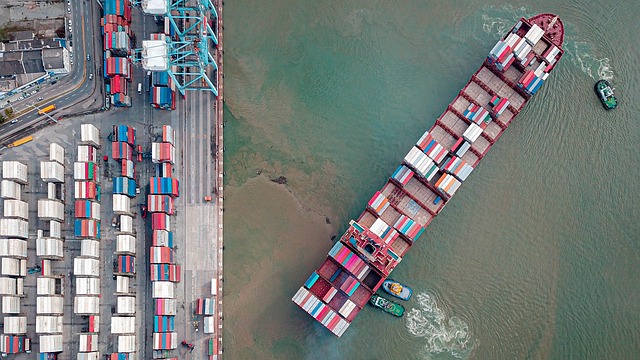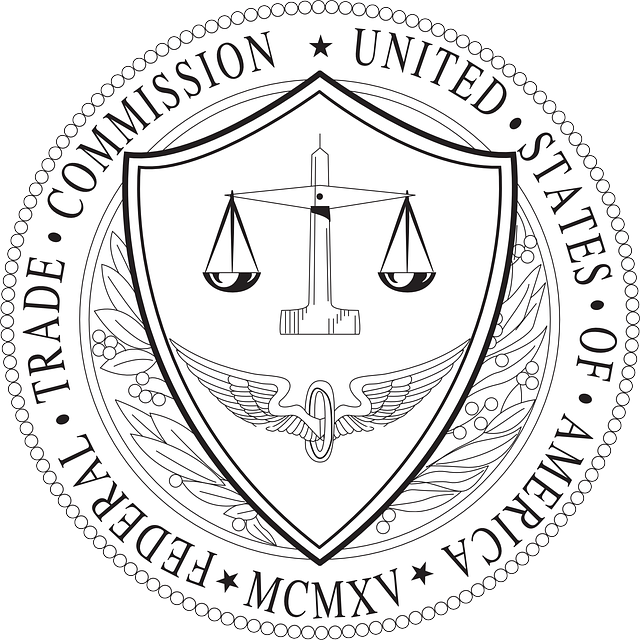UK businesses must navigate complex customs and trade documentation to ensure smooth international transactions. Accurate translations of these documents by specialized UK translation services are critical to avoid delays at borders and comply with Her Majesty's Revenue and Customs (HMRC) standards. Engaging professionals with expertise in legal language and the nuances of customs forms is essential for precision in translations, which can be pivotal in preventing legal issues or border complications. Companies should verify the credentials of translation providers, such as those accredited by the Institute of Translation and Interpreting (ITI) or the Chartered Institute of Linguists (CIOL), to guarantee that their customs and trade documents meet all necessary legal requirements and are correctly translated for efficient clearance. The real-world evidence shows that relying on specialized translation services can resolve existing issues, prevent future delays, and facilitate successful international trade ventures.
Navigating international trade, particularly with the UK, necessitates a meticulous approach, especially when linguistic barriers are involved. Accurate translations of customs documents are pivotal to seamless import/export operations. This article delves into the critical role of translation services in adhering to UK customs and trade regulations. From understanding the types of documents required to ensuring linguistic precision in customs declarations, we explore best practices for avoiding delays at borders and how to select a trustworthy service provider. With case studies highlighting successful operations facilitated by high-quality translations, this guide is an indispensable resource for businesses engaging in trade with the UK. Keywords: Customs and Trade Documents UK translation services.
- Understanding the Necessity of Accurate Customs Document Translations in the UK
- Overview of UK Customs and Trade Regulations for Non-Native Speakers
- The Role of Professional Translation Services in Navigating UK Import/Export Procedures
- Key Types of Documents Required for International Trade with the UK
- The Importance of Linguistic Precision in Customs Declarations and Forms
- Choosing a Reliable Translation Service for Your UK Customs Needs
- Best Practices for Document Translation to Avoid Delays at UK Borders
- How to Verify the Credentials of Translation Service Providers in the UK
- Case Studies: Successful Import/Export Operations Facilitated by Quality Translations
Understanding the Necessity of Accurate Customs Document Translations in the UK

In the dynamic realm of international trade, accuracy in customs document translations is paramount for entities operating within or entering the UK market. The intricacies of trade regulations require meticulous attention to detail, ensuring that every word in a customs and trade document is conveyed with precision. UK translation services specializing in this niche are indispensable, as they bridge communication gaps between trading partners and British customs authorities. A single error or misinterpretation can lead to costly delays, legal complications, or fines. These professional services guarantee that all documentation complies with the stringent standards set forth by UK customs, thereby facilitating smoother transactions and adherence to legal requirements. Companies must recognize the critical nature of this task, as it directly impacts their operations and profitability.
The importance of utilizing specialized customs and trade documents UK translation services cannot be overstated. These services are equipped with expert linguists who are well-versed not only in language nuances but also in the legal and regulatory contexts relevant to customs procedures. This expertise ensures that translations are not just literal, but also functionally accurate, reflecting the original intent and meaning of the source documents. By leveraging these services, businesses can navigate the complexities of cross-border trade with greater confidence, knowing that their communications with UK customs are clear, compliant, and correct. This level of assurance is invaluable for maintaining compliance, avoiding disruptions, and upholding a company’s reputation in the global marketplace.
Overview of UK Customs and Trade Regulations for Non-Native Speakers

Navigating the UK’s customs and trade regulations can be complex for non-native speakers, particularly when it comes to accurately completing necessary customs and trade documents. The UK’s Customs and Trade Documents UK translation services play a pivotal role in ensuring that all import and export documentation is precise and compliant with British standards. These translations are critical as they facilitate the smooth passage of goods across borders, avoiding potential delays or legal issues due to miscommunication or errors in language. Businesses dealing with international trade must adhere to stringent regulations set forth by Her Majesty’s Revenue and Customs (HMRC). This includes a wide array of documentation, such as commercial invoices, packing lists, and certificates of origin, all of which require meticulous attention to detail. Utilizing professional UK translation services is essential for non-native speakers to accurately convey the necessary information in these documents, thereby ensuring compliance and efficiency within the customs process. These services not only provide a linguistic bridge but also assist in navigating the complexities of trade law, ultimately safeguarding businesses from potential disruptions that misinterpretation or omission of key details can cause.
The Role of Professional Translation Services in Navigating UK Import/Export Procedures

In the realm of international trade, the accuracy and legality of customs and trade documents are paramount for seamless import/export transactions within the UK. Professional translation services play a pivotal role in this context, offering meticulous translations of essential documents that facilitate compliance with UK customs regulations. These services ensure that all paperwork, from commercial invoices to packing lists, is accurately conveyed in both English and the language of origin, thus avoiding delays or legal complications at borders. By leveraging the expertise of seasoned linguists who are often well-versed in trade jargon and familiar with the nuances of UK customs procedures, businesses can navigate these processes efficiently, minimizing risks associated with miscommunication or errors in documentation. This not only saves time but also safeguards against potential fines or shipment detentions, making professional translation services an indispensable asset for companies engaged in cross-border trade with the UK.
Furthermore, the importance of these translations extends beyond mere language conversion; they are a critical component of due diligence and risk management in international commerce. With customs and trade documents UK translation services, businesses can be assured that their transactions are legally sound and that all import/export declarations are accurately represented. This level of precision is crucial for maintaining trust with partners and regulatory bodies, as well as for upholding a company’s reputation in the global marketplace. As such, investing in professional translation services is not just a strategic move but an essential one for any entity looking to engage in international trade with the UK.
Key Types of Documents Required for International Trade with the UK

When engaging in international trade with the United Kingdom, it is imperative to have all customs and trade documents accurately translated to facilitate smooth transactions. The UK’s Customs and Trade Documents UK translation services play a pivotal role in this process, ensuring that each party involved has a clear understanding of the contents. Key types of documents required include Commercial Invoices, which detail the goods being traded, their values, and terms of sale; Packing Lists, which accompany the commercial invoice and describe the content, quantity, and weight of individual packages; and Bill of Lading or Airway Bills, which serve as a receipt issued by a carrier to a shipper. Other critical documents are Certificates of Origin, which verify the country in which goods are produced, and Safety and Security Declarations, which are mandatory for sea and air freight to assure the UK authorities that the cargo poses no security risk. Furthermore, VAT and Customs Duty documentation must be precise to avoid delays or penalties at customs. Utilizing professional translation services for these documents is essential for compliance with UK regulations and for the efficient clearance of goods across borders. Accurate translations reduce the likelihood of errors that could lead to costly delays, ensuring that trade operations proceed without complications.
The Importance of Linguistic Precision in Customs Declarations and Forms

When engaging in international trade, the accuracy and reliability of customs documentation are paramount. The UK’s Customs and Trade Documents require precise translations to navigate the complexities of cross-border commerce effectively. Linguistic precision ensures that all information is correctly conveyed, avoiding potential miscommunications or errors that could lead to delays or legal complications at the border. Translation services specialising in UK customs declarations must be adept at handling various documents, including commercial invoices, packing lists, certificates of origin, and more. These documents not only facilitate the movement of goods but also comply with strict regulatory standards set by Her Majesty’s Revenue and Customs (HMRC). By leveraging professional UK translation services, importers and exporters can mitigate risks, ensure compliance with trade regulations, and expedite the customs clearance process. This commitment to linguistic accuracy is crucial for maintaining smooth operations within the global supply chain and fostering trust between trading partners.
Choosing a Reliable Translation Service for Your UK Customs Needs

When engaging with UK customs, precise and accurate translations of customs and trade documents are indispensable. The process of international trade is complex and demands a high level of documentation accuracy to avoid delays or legal complications. Opting for a translation service that specializes in UK customs document translation ensures compliance with the stringent requirements set by Her Majesty’s Revenue and Customs (HMRC). These experts are well-versed in the nuances of legal language and the specific terminology required for customs forms, which can vary significantly from one country to another. They offer services that cater not only to the literal translation but also to the cultural context, ensuring that all information is conveyed correctly and efficiently. When selecting a service provider, consider their track record with UK customs document translations, their familiarity with the regulatory environment, and their commitment to maintaining confidentiality and data security. This due diligence will safeguard your business operations and facilitate a smooth clearance process through UK customs.
Best Practices for Document Translation to Avoid Delays at UK Borders

When engaging customs and trade documents UK translation services, precision and compliance are paramount to avoid delays at UK borders. Translators must possess a thorough understanding of both the source and target languages as well as the specific terminologies used in customs and trade documentation. Utilizing professional translators who specialize in legal and regulatory language ensures that all necessary details are accurately conveyed, which is critical for smooth processing by customs officials.
To mitigate potential delays, it is advisable to choose translation services that offer certified translations. These translations come with a signed statement of accuracy and authenticity, often required for official documents. Additionally, companies should provide clear context and instructions alongside the documents to be translated, allowing translators to accurately reflect the intended meaning and relevance of each document. Timely communication between the exporter, importer, and the translation service is also crucial to meet deadlines and comply with UK customs regulations. By adhering to these best practices, businesses can significantly reduce the risk of delays and ensure a seamless entry of goods into the UK.
How to Verify the Credentials of Translation Service Providers in the UK

When engaging with translation service providers for customs and trade documents in the UK, it is imperative to verify their credentials to ensure accuracy and compliance with legal standards. The United Kingdom’s Customs and Trade Documents require precise translations to avoid delays or misunderstandings at borders. Potential clients should begin by checking if the translation service holds professional accreditation, such as membership in the Institute of Translation and Interpreting (ITI) or the Chartered Institute of Linguists (CIOL). These organisations uphold high standards of quality and ethics among their members. Furthermore, one should look for translators who specialise in legal or technical translation, given the complex nature of customs documents. It is also advisable to review a sample of their previous work to assess their proficiency and attention to detail. Always confirm that the service provider has a proven track record with clients handling similar documentation. By diligently vetting your translation service provider, you can mitigate risks associated with linguistic errors or non-compliance, which could have significant repercussions for trade operations in the UK.
Case Studies: Successful Import/Export Operations Facilitated by Quality Translations

UK businesses engaging in international trade must navigate a complex web of regulations, one of which is ensuring that all customs and trade documents are accurately translated. Quality translations from reputable UK translation services play a pivotal role in facilitating successful import/export operations. For instance, a multinational corporation looking to expand its market in the European Union encountered significant hurdles when their shipments were delayed at customs due to mistranslated documents. Upon engaging a professional UK translation service specializing in customs and trade documentation, the company experienced a swift resolution of these issues, with subsequent shipments cleared without delay. Similarly, a small UK exporter faced challenges entering the South American market, where local authorities strictly enforced document accuracy. By leveraging the expertise of a seasoned translation service, the exporter’s paperwork was flawlessly translated, leading to seamless transactions and an expansion of their customer base in that region. These case studies underscore the importance of precision and reliability when choosing a UK translation service for customs and trade documents, ultimately saving time and ensuring compliance with international regulations.
In conclusion, navigating the complexities of international trade with the UK necessitates meticulous attention to customs and trade documents. Accurate translations by trusted UK translation services are paramount to avoid delays and ensure compliance with regulations. By leveraging professionals skilled in linguistic precision for customs declarations and forms, businesses can confidently engage in import/export operations. It is advisable to verify the credentials of your chosen translation service provider to guarantee the highest quality translations that accurately reflect the content’s original intent. The case studies highlighted demonstrate the tangible benefits of investing in reliable translation services, reinforcing their critical role in facilitating smooth international transactions. With the right translation partner, businesses can seamlessly bridge language barriers and capitalize on the UK market’s opportunities.



